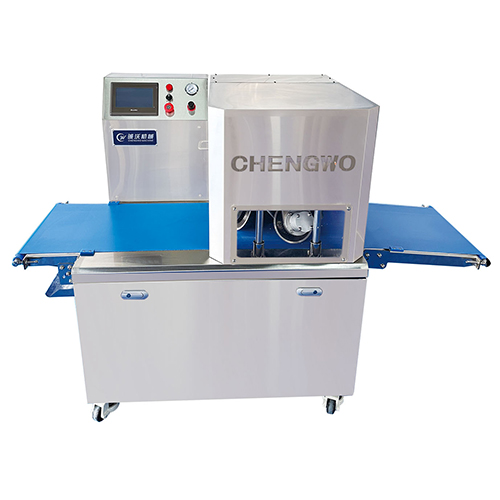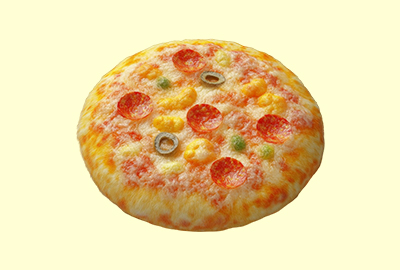



Running a bakery, from single stores to large food processing facilities, presents challenges in meeting demand, maintaining quality, and controlling costs. The best pizza dough press designed for automation is a transformative solution for these operations. It acts as a partner in efficiency, consistency, and scalability, handling high volumes with uniform dough and minimal labor.
An automated pizza dough press is the ideal solution for tackling labor shortages, inconsistent dough quality, and production bottlenecks. This blog will explore how these presses enhance efficiency and quality, reduce labor costs, and streamline your bakery’s workflow, especially when integrated into a fully automated bread production line.
If your bakery faces peak demand periods or high-volume orders, manual dough pressing can quickly become a bottleneck. The best pizza dough press for automation is specifically engineered to:
By precisely controlling dough thickness and size, these machines enable your bakery to keep up with busy shifts and large catering requests without the headache of inconsistent dough shapes or uneven thickness.
In a nutshell, these dough presses act as a force multiplier, maximizing throughput while reducing manual work.
One of the biggest challenges in pizza production is maintaining uniform dough quality, which directly impacts baking performance and final taste. The best pizza dough press can deliver:
By integrating with an automated baking line, you get repeatable quality batch after batch, helping you build customer trust and reduce returns or complaints due to product inconsistency.
Finding and training skilled dough handlers or pizza makers is a costly and time-consuming process. With the best pizza dough press designed for automation, you can:
This technology not only saves money but also protects your bakery from operational disruptions caused by staff shortages or turnover.
The best pizza dough press should be user-friendly and easy to clean, helping you maintain a smooth production environment:
These features save time and reduce the risk of contamination, so you can keep your bakery running smoothly every day.
Standard version
| Parameter | Specification |
|---|---|
| Output | 1000-3500 pcs/h |
| Finished Diameter Range | 50-220 mm |
| Power | 1.5KW |
| Weight | 260kg |
| Size | 1600 × 670 × 1150 mm |
Large models
| Parameter | Specification |
|---|---|
| Output | 1000-2000 pcs/h |
| Finished Diameter Range | 150-340 mm |
| Power | 1.7KW |
| Weight | 355kg |
| Size | 1720 × 840 × 1210 mm |
Choosing the best pizza dough press for automation can revolutionize your bakery or food processing facility. From drastically improving efficiency and product consistency to cutting labor costs and simplifying operations, these presses are designed to meet the demands of modern baking businesses.
If you’re ready to boost your production capacity, deliver consistent quality, and future-proof your bakery against labor challenges, it’s time to explore automated pizza dough presses tailored for high-volume commercial use.
What makes a pizza dough press the “best” for automation?
It’s a combination of precise dough handling, high production speed, ease of use, and compatibility with automated baking lines that sets the best dough presses apart.
Can these machines handle different dough recipes and thicknesses?
Yes, most advanced presses allow you to adjust thickness and shape settings to accommodate various dough formulations and pizza styles.
How difficult is it to train staff to operate the press?
Training is straightforward, often taking just a few hours, thanks to intuitive controls and preset programs.
Is maintenance complicated or expensive?
Maintenance is generally simple, with modular components designed for easy cleaning and servicing, keeping costs low.

